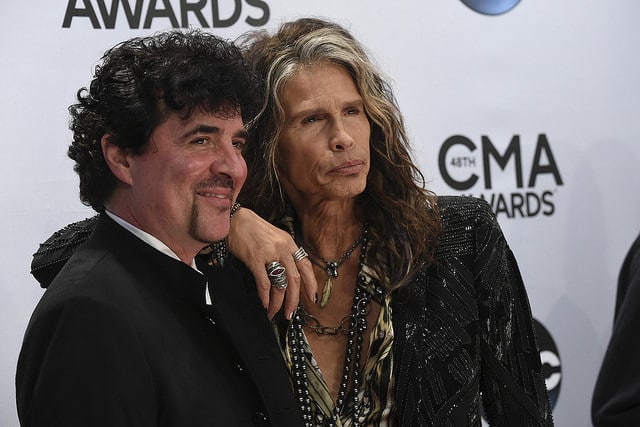Videos by American Songwriter
In a move that recalls what Taylor Swift did with the deluxe version of Speak Now, which is being sold exclusively at Target, Keith Urban will also partner with the mega-store for the November 15 release of his new album, Get Closer. Both albums come packed with extras like unreleased tracks, live tracks, remix versions and videos.
We all know how well Speak Now did in its first week of sales. But, perhaps more interesting than the one million total units sold, were the 350,000 physical CDs that Swift sold through Target. Troy Carter, head of Coalition Music Group, who manages Lady Gaga, recently told Billboard that those statistics were very promising, adding that whenever it seems impossible for an artist to sell a million units in one week, it happens, listing off 50 Cent and Lil Wayne as past examples. (Lady Gaga’s sophomore release is slated for some time in 2011.)
But rounding up enough extra content for a deluxe CD is no small task. A winning example from this past year is the Rolling Stones’ Exile On Main Street reissue, which got fans frothing at the mouth over 10 unearthed tracks from the 1971 sessions. While deluxe editions have always been a go-to for the reissue format, it’s a tactic increasingly utilized for new releases.
For Keith Urban’s regular issue of Get Closer, the artist and his label, Capitol, took what was, in effect, an 11-song album and shortened it to eight songs. The deluxe edition adds back those three songs – recorded during the same Get Closer sessions – and also includes four live tracks, all singles previously released such as “Better Life” and “Once In A Lifetime.”
“In some ways it’s all just one record, but one is a shorter version while the Target version is the full album,” Urban told Billboard in a recent interview. “If people get the shorter version and love it, maybe they’ll want to hear some more songs.”
While the Target play is largely an attempt to boost physical CD sales at the store (and Target.com), the campaign around Get Closer also leverages social media. Each day leading up to the November 16 album release, Urban and Target will post new tracks on their Facebook pages. In order to “get closer” to Urban, fans will be required to opt-in, giving Target and Urban access to their basic information.
Urban is also reaching out to fans in another interactive way. In a move akin to a Taylor Swift tactic, Urban has stayed in touch with fans by posting video blogs on his website throughout the recording process of the album. “A lot of people want to know how things are done and what happens behind the scenes,” the artist explained to the Wall Street Journal. “As an artist you try to do that without revealing too much.”
As if the Target deluxe edition and Facebook tie-ins weren’t enough, Urban has also partnered with Guitar Center and Ourstage.com, a contest platform provider, offering fans an opportunity to submit their songs for a chance to work with Urban in the studio.
The winner, who will be voted on by fans but ultimately decided on by Urban and a panel of industry experts, will join Urban and a top producer in the studio to record a three-song EP, with Urban appearing on one track. The contest, which opened on October 1, has garnered about 2,000 entries so far, Urban told the WSJ this week.
With a diversified media reach, the Get Closer campaign succeeds at both traditional and new media, smartly combining the two when possible. The campaign engages with fans and collects data through the internet, and at the same time offers a premium product in stores.
While music purists may scoff at the notion of musicians partnering with big, non-music brands like Target or Walmart, the tactic has been widely seen as positive in the music industry, and not just in mainstream pop and country. In the indie music world, there’s been the success of Mountain Dew’s singles label, Green Label Sound, which has released songs by Chromeo, Neon Indian, Wavves, and others.
If there’s something that artists big and small can learn from these models, it’s that the new distribution model is that there isn’t “one” distribution model. One reason Swift’s record did as well as it did, aside from it’s musical merits, is that it was so omnipresent during release week. As we learned from Swift’s million-seller, distribution has to be innovative, and no marketing idea should be turned down on principal, alone.














Leave a Reply
Only members can comment. Become a member. Already a member? Log in.